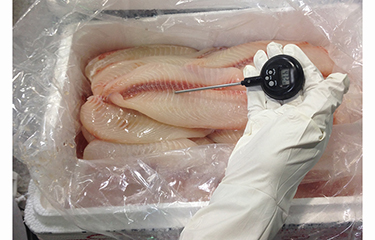A report by the U.S. Government Accountability Office (GAO) released on 19 March found that the U.S. Food and Drug Administration (FDA) has been failing to follow its own procedures or meet key goals regarding warning letters sent to seafood companies violating food safety regulations.
The report, which came with a GAO recommendation that the FDA monitor whether it is following procedures and meeting goals for its warning letters, found that out of 125 warning letters sent for significant inspection violations, just 14 were properly followed up on. The FDA’s own goal for all warning letters requires follow-up inspections within six months to ensure violations have been corrected – a goal the administration rarely meets.
“For the letters that FDA sent from 2014 to early 2019, FDA didn't consistently follow key procedures or meet key goals,” the GAO said in a press release.
The GAO analyzed 167 imported seafood warning letters issued by the FDA from 1 January, 2014, through 11 March, 2019, finding that for those letters the FDA “did not consistently follow key procedures or meet key goals for its warning letter process.”
“For example, when FDA issues a warning letter based on significant inspection violations, the agency has a goal to conduct a follow-up inspection within six months of the date the warning letter was issued,” the GAO said. “Of the 167 warning letters we reviewed, 125 were based on significant inspection violations. FDA met its six-month goal for 14 (11 percent) of these 125 letters.”
For 56 percent of the letters, the FDA did a follow-up inspection, but more than six months later. According to the GAO, it took the FDA an average of two years after a warning letter to perform a follow-up inspection. For the remaining 44 percent, no follow-up inspection had been performed at all as of 11 March, 2020.
In addition, the GAO report referenced an earlier report by the U.S. Department of Health and Human Services Office of the Inspector General, performed in 2017, which found the FDA did not properly classify actions taken against certain seafood importers, and subsequently failed to perform the required inspections.
“The report concluded that if FDA did not ensure that significant inspection violations are corrected in a timely manner, the agency would be unable to guarantee that these facilities are not producing and distributing food that is harmful to the public,” the GAO report states.
The issue, according to the GAO, is that the FDA has no method of determining whether warning letters sent to imported seafood companies have followed procedures consistently, and FDA officials stated they had not conducted any review of letters.
“Developing a monitoring process, which could include regularly reviewing aggregate data, would increase FDA's awareness of whether the letters adhere to procedures and goals and help FDA ensure significant food safety violations have been adequately corrected,” the GAO said.
In addition, the FDA has not established any performance goals or measures for its imported seafood warning letters – "key elements for assessing effectiveness," according to the GAO.
The report was sent to FDA officials, who responded that it will use the recommendations on “performance goals, measures, and monitoring to further strengthen the safety of imported seafood and other FDA-regulated food imports,” the GAO said.
“More specifically, FDA agreed with our recommendation that it establish a process to monitor whether the agency is consistently following key procedures and key goals for its imported seafood warning letters, and take corrective action when necessary,” the GAO said.
The GAO added that the FDA’s agreed efforts are “a good start,” but that the “agency can ensure that its actions fully satisfy our recommendations if it develops a process to monitor the application of key procedures and key goals for all its imported seafood warning letters and develops specific performance goals and measures to assess the effectiveness of its warning letters in ensuring the safety of imported seafood.”
Photo courtesy of the Government Accountability Office







